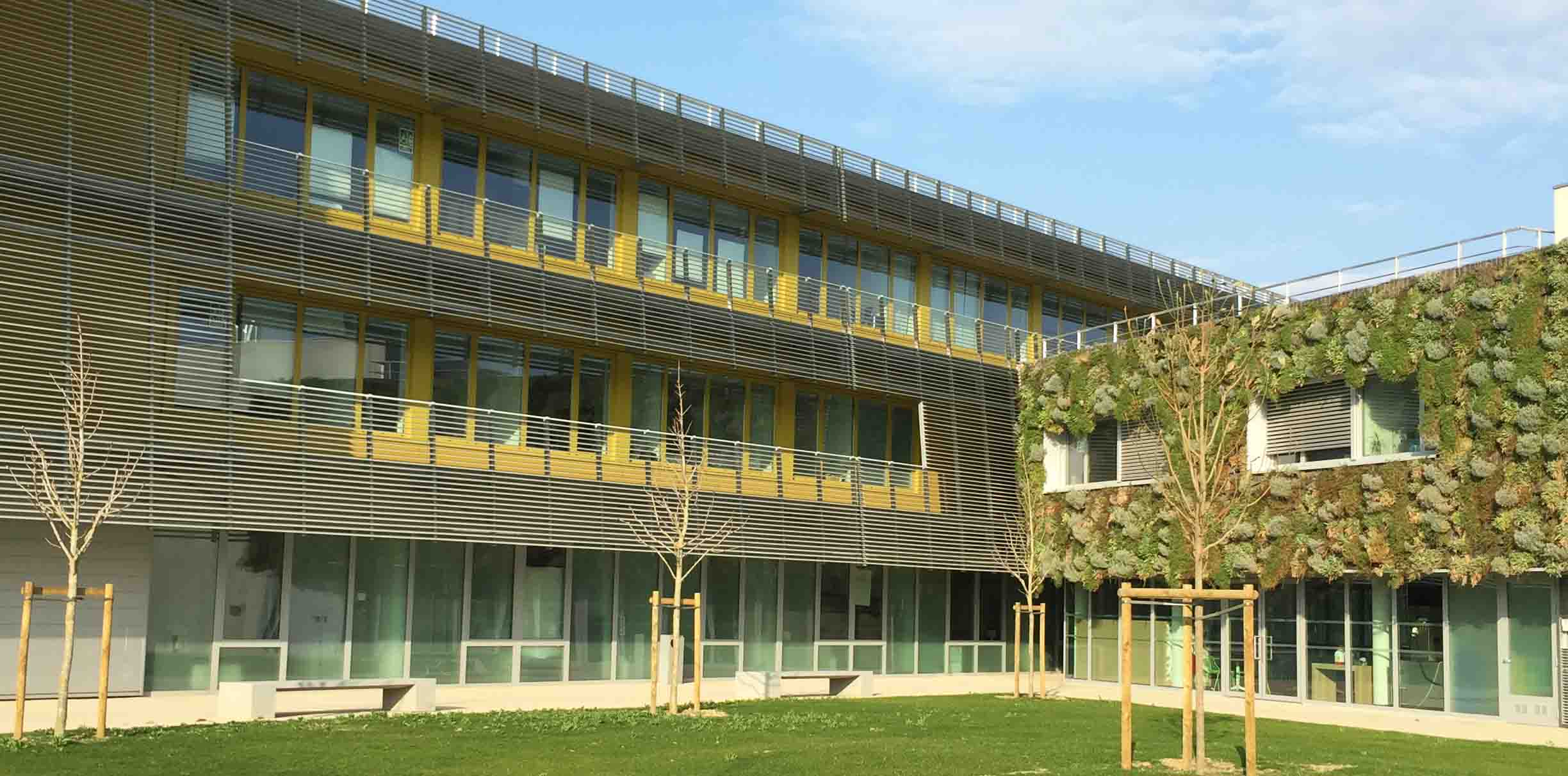The Jean-Henri Fabre Campus
History of the establishment of the University of Avignon on Agroparc
The year 2006 saw the opening of two new buildings: the omnisport complex, in the city centre, and the UFR-ip Sciences, Technologies, Health, at Agroparc. The geographical location of the Avignon Regional Agri-Food Technopole enables the university's links with the socio-economic network to be anchored in the field.

Research and teaching at the heart of the concerns
Agroparc, a place of interactive experimentation, encourages synergies between the student world, research and companies, thus promoting the dissemination of knowledge. In addition to the specific agri-food courses, several high-level courses are offered in marketing, logistics, distribution, IT, accounting/management, mechanics and electrical engineering.
With nearly 3,000 students and more than 400 teacher-researchers, this site is a formidable reservoir of grey matter. All levels of diplomas are represented, from the CAP to the Doctorate, in a large number of fields. In September 2003, this teaching and research centre received recognition from the Ministry of National Education, Higher Education and Research, jointly with the Ministry of Agriculture, through a "PFT" (Plate-Forme Technologique) label.
The main areas of technical specialisation are linked to all the R&D activities of the companies located on the campus, the INRA and the 8 research laboratories in Science, Technology and Health, which are based on the identity of the University of Avignon. Whether through the University of Avignon, its Jean-Henri Fabre Campus with the UFR-ip Sciences, Technologies, Health, the IUT d'Avignon or the Agricultural High School, all the skills are likely to be acquired on Agroparc.
On 29 January 2016, the Ministry of National Education, Higher Education and Research awarded the Campus 3A: Agrosciences, Agri-food and Food, coordinated by the University of Avignon. This Campus of trades and qualifications is a collective response by the Region, the Rectorate, the Ministry of Agriculture, the University and the professionals of the food sector, to the development of the territory and its resources.
With the support of the TERSYS federative research structure the University of Avignon, the technology transfer centres of the food industry and the Terralia competitiveness cluster, this centre of excellence brings together the human qualities and logistical capacities capable of accentuating the dissemination of innovation within training courses and the professional integration of young people and adults.
L'UFR-ip Sciences, Technologies, Health
L'UFR-ip Sciences, Technologies, Health is a component of the University of Avignon which offers training from the Bachelor's degree (Bac +3) to the Doctorate (Bac +8). It has 126 professors and teacher-researchers, 61 administrative and contractual staff, and more than 2500 students.
- Biology
- Chemistry
- Hydrogeology
- Information Technology (Centre for Education and Research in Computer Science)
- Mathematics
- Physics
- STAPS
Bioorganic Chemistry and Amphiphilic Systems (IBMM - UMR 5247)
Avignon Computer Science Laboratory (EA 4128)
Avignon Mathematics Laboratory (EA 2151)
Cardiovascular Pharm-Ecology Laboratory (EA 4278)
Fruit and Vegetable Physiology Laboratory (EA 4279)
Joint Research Unit 408 UAPV-INRA
UMR CNRS-IRD 7263 IMBE Institut Méditerranéen de Biodiversité et d'Ecologie
UMR EMMAH Mediterranean Environment and Agro-Hydrosystems Modelling
The University Institute of Technology of Avignon
Since its creation in 1990, the University Institute of Technology (IUT) of Avignon has been able to build a coherent and reactive training system adapted to the employment needs of the different economic sectors.
The close links forged with companies and professional circles have enabled the development of 5 DUT specialities and the creation of 6 professional degree courses.
Opting for a course at the IUT today means preparing your professional project and giving yourself the means to exceed this objective. With a Bac +2 (DUT) as with a Bac +3 (Professional Licence), professional integration corresponds to the expectations of the job market.
For more information
- Welcome to the Jean-Henri Fabre Campus (*.pdf)
- Discover Jean-Henri Fabre (*.pdf)
With 450 companies installed, Agroparc is an economic lung for the Greater Avignon agglomeration.
Covering an area of 200 ha, Agroparc houses :
- 5000 students
- 130,000 m² of premises for professional use
- 50 socio-professional organisations
- 6 research organisations
- 12 training organisations
- An incubator of 136 companies
Mis à jour le 22 December 2022